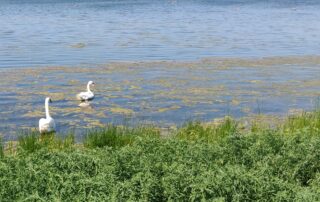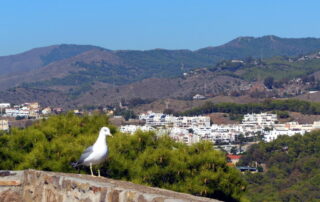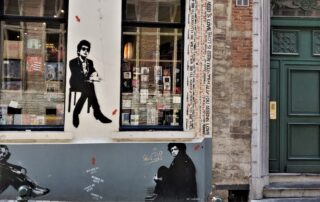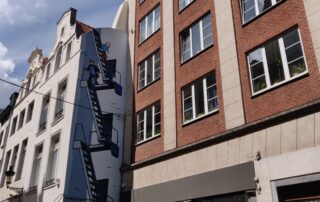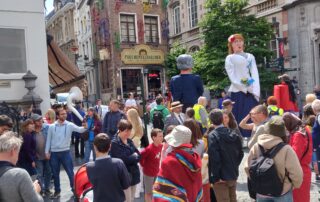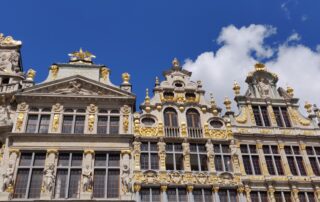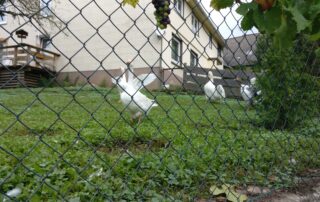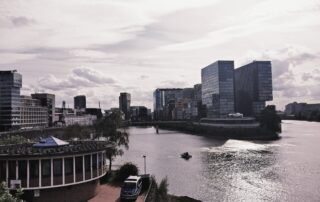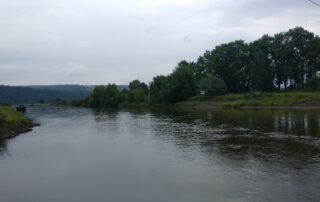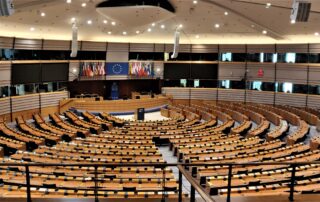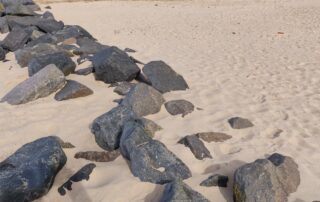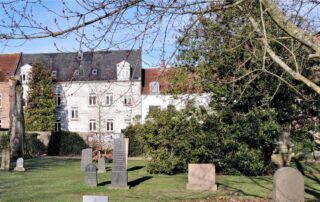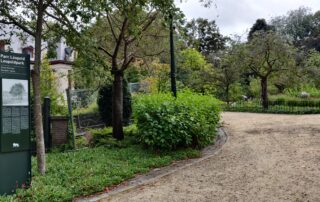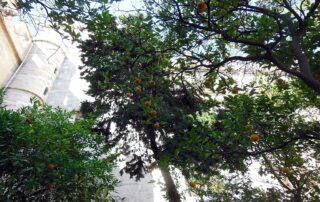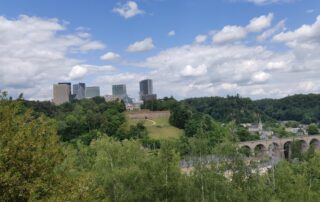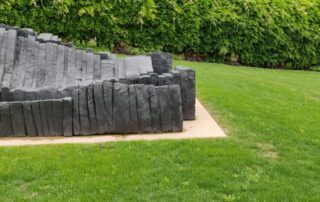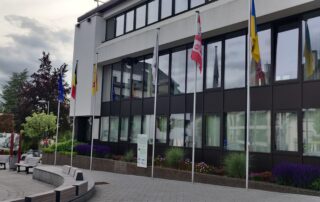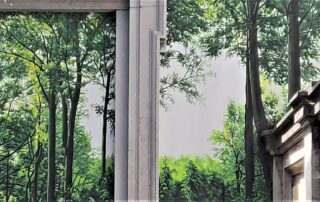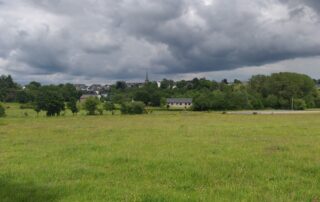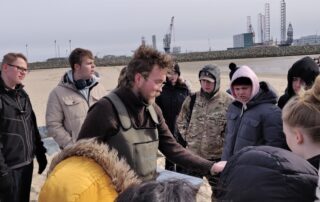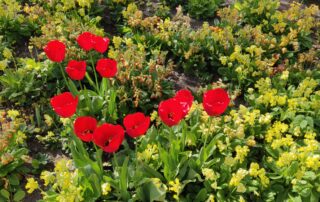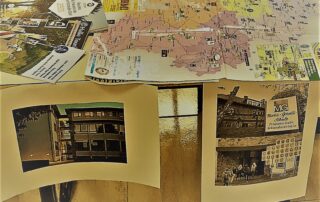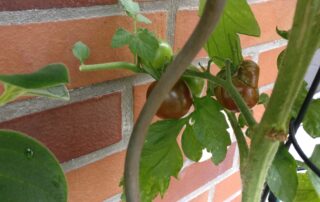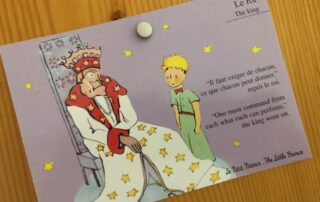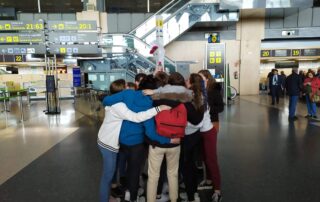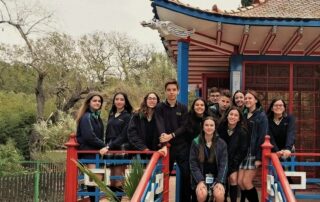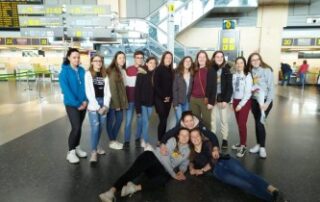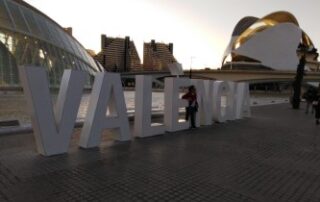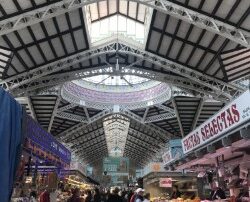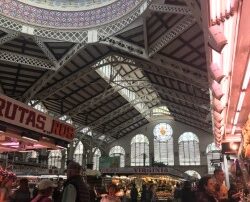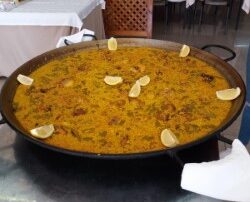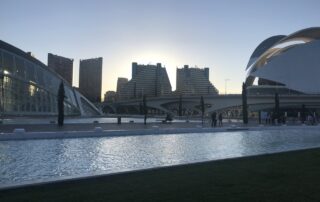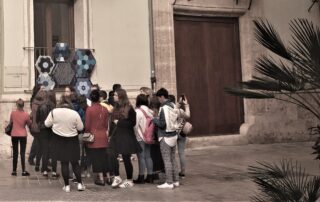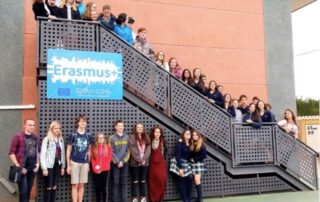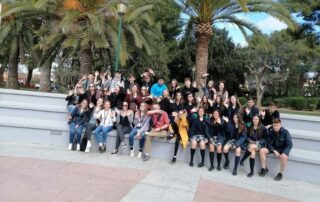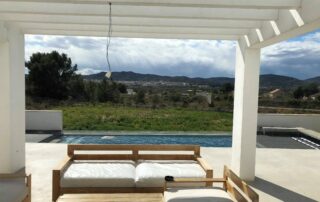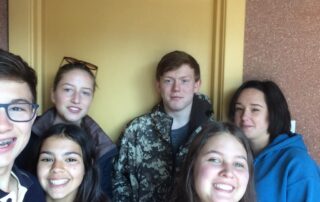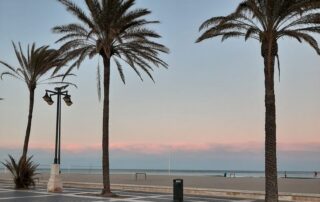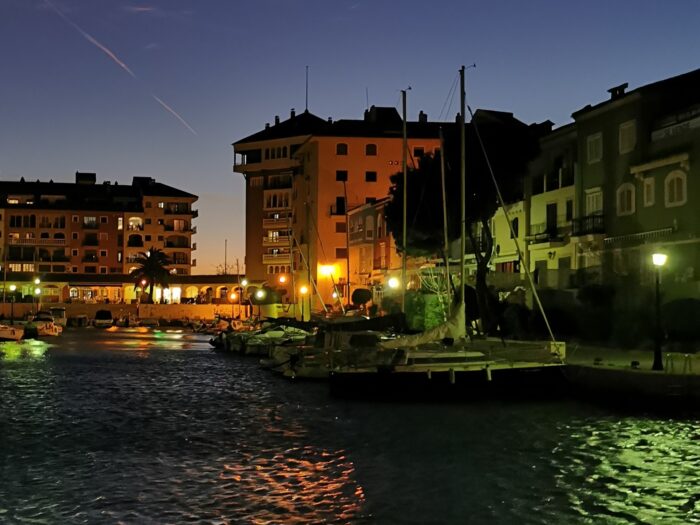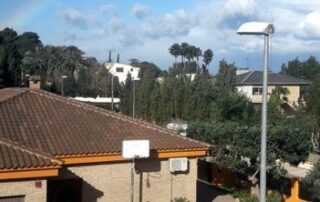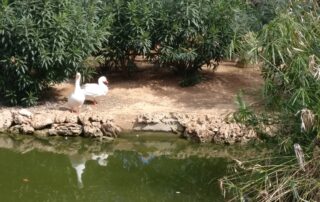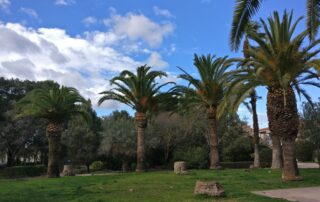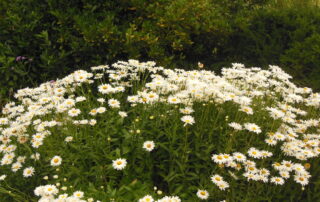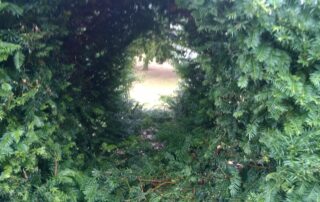Pedagogy before technology
However keen on technology you are, put pedagogy first. Always.
Social media and mobiles in the classroom
Keeping mobiles out of the classroom has been a battle for the past few years but recently it seems to have become worse than ever. We live in a world where mobile phones appear to be an extension of our arms and every few minutes, we feel the urge to consult our screens in case we have missed something important. But what effect is this addiction having on students both in class and outside, and how is it impacting on their concentration skills and learning? If used correctly, mobile phones can be a great tool for students to find information
Reading a film’s content, cinematography, and technical aspects
Film literacy means for me the competence to critically watch a film and to analyse its content, cinematographic and technical aspects. To improve my language, I often watch a film in a language that is not my native language. Sometimes I use the subtitles to read the lines I haven’t understood. With this technique, I learn some new vocabulary. Mostly, I watch the films in English to improve my English even more. But I also watch some movies in Spanish with a German subtitle to get to know a few Spanish words. While improving my language skills, I also discover
It is important to get to know the culture and humour of other countries
Learning language and culture with film Film literacy isn’t about the content of the fil, itself. It’s more about the different angles we can use with the camera. It is also related to the music chosen in each scene and why. It’s also important to look at the film critically and to use technical resources in creative moving image production. I think that I learned a lot vocabulary and idioms of watching movies and series. But it’s important to watch films that haven’t been translated from another language into English, because sometimes the translations are wrong and you will take
We usually watch films to relax
Film literacy means being conscious about the choice of films as well as how understandable it is. Watching a movie critically. It means bringing the message to the viewer through different angles, places where the scenes are shot, music, etc. I learned most of my English because I started watching series and films in this language. It also taught me the English that people speak in their daily life and the slang and not just the school English. You can learn a lot of new vocabulary and idioms that you usually do not learn in school. Thanks to movies from
Film literacy stands for competence to analyse and criticize a film from different angles
Film literacy is the level of understanding of a film. It’s the competence to analyse and criticize the story, the message the film wants to convey and the way the film was made. By watching a film in a foreign language you can improve your language because it helps you learn new vocabulary and it also helps you to pronounce the words right. Thanks to certain films we learn more about other cultures, about their way of life, but also everything we don’t see behind our prejudices. For example in the film “Blinded by the light” we learn more about
Producing films and creating atmosphere is impossible without film literacy
Film literacy to me personally means the way of producing films, creating an atmosphere where people keep watching and not going to be annoyed, by camera angles and the way of filming, the music, light and many different factors. It’s truly an art to combine that many different factors to create a successful movie. I think watching movies in English has really improved my English skills in many different ways, through listening to the pronunciation of words and getting in touch with expressions which you may not learn in school because you use them in other countries or only in
Films are good for language learning
When you watch a film you have to be conscious of what are you choosing. It is important to understand those films you watch, because if you do not understand them you won´t understand the plot. When you pick a film you may search what is the movie about, sometimes you can be picking a terror film and you do not like them, also you have to look for the age the film is recommended to, so you shouldn´t pick a film that is not for your age, this is made mostly for kids, they can´t see every kind of
The seventh art
Film literacy is considered as the „seventh art“. As this art improves and keeps on producing better results, it also gets closer to the society in which we live nowadays. Film literacy means taking profit of every available resource so that the filmed scenes will transmit as better as possible the movie’s intention or ideas, and that plays a really important role in engaging the spectators and making them part of the action. Film literacy can also help people when learning a new language or about a foreign country. It is as closer as a person can get to another
What is Democracy?
No one is born a good citizen, no nation is born a democracy. Rather, both are processes that continue to evolve over a lifetime. Young people must be included from birth. (Kofi Annan) The word democracy comes from the Greek words "demos", meaning people, and "kratos" meaning power; so democracy can be thought of as "power of the people": a way of governing which depends on the will of the people. When we turn 18 we eagerly go to cast our vote for the first time, we study the candidates on offer, evaluate their policies, and place our X in
Most of my English comes from movies
Film literacy does a lot for me in the way it’s a way of me to relax and have something to do with my day, so I don’t just sit around rolling my thumbs in circles and do nothing. Most of my English comes from movies, together with gaming, and so it happens to most languages I can and speak from, as seen from movies or so. The intercultural stuff I have seen in movies have put a good experience and learning curve of how it is in different places and see how some cultures have it around the world.
You need film literacy when actually making a movie
Film literacy doesn’t mean much to me since I myself don’t really care all that much about how the movie is made. I only see a need for it when it comes to actually making a movie. I just want to be able to lean back and enjoy the movie without thinking “oh they made this scene by doing this and that”. It’s possible to learn a lot of language from movies due to there usually being subtitles. These make it easier to understand movies but we also subconsciously pick up some of the language through watching and reading I
Film literacy is the way of understanding the film
Film literacy is the way of understanding the film. Like how you conscious you are when you pick a movie to watch and if you pick the wrong movie which does not suit your taste you obviously you pick another movie. I have a long history with film. I watch a good movie on a daily basis or I watch part of a movie, so I get a lot of English into my ear. This way, I hear a lot of English and I understand by this point. Sometimes, when I need something in the background, I put an English
You should actually be curious and picky in the choice of a film
To me film literacy means a lot as a film-watcher. You have to have a level of understanding the film you`re watching and you should have the ability to actually be curious and picky in the choice of the film you`re watching and at the same time be able to be critically and think deeply about the plot, topics, messages and characters. I want to be a good film-viewer to get the best experience and be truly able to analyse the entire thing I`m spending my time on. Films and TV-shows has helped me a lot over the years with
The more you understand what the movie is about, the more literate you are
In my opinion, film literacy means how well you can grasp the content of a movie. The more you understand what the movie is about, the more literate you are. The first language I learned was Russian. After that cartoons and movies helped me learn English and Estonian. In fact, movies are probably the sole reason why my English is at such a level. Last year I acquired a C2 level of English. The highest achievable level, and I'm proud of it. Movies have helped me to get a better grasp of different cultures all around the world. I would
Film literacy is how well you can “read” a film
Film literacy is an important skill when watching anything more intelligent than Alvin and the Chipmunks or SpongeBob. It means how well you understand the film. Just like regular literacy is how well you can read a book (or your local news agency’s comment section), film literacy is how well you can “read” a film. Even though most of the time I am a relaxed watcher, just putting a film or a series on a screen and laying back to get entertained, some films manage to hook me up to find hidden meanings and themes in it. I’ll try to
Intercultural learning is something that comes along with films whether we want it or not
Film literacy is something I find very interesting and captivating. It’s not something I actively think about a lot of the time while watching a film for the first time, unless there is a shot or a technique that I don’t see often. I do, however, love to analyse films after watching them and that is when film literacy becomes very useful. I find it to be the coolest thing when people point out little foreshadowing, Easter eggs and cool characterisation techniques about my favourite movies. To be frank, most of my English language skill has come from TV shows
Film literacy is the ability to watch a film consciously
To me, film literacy is the ability to watch a film consciously. So you can critically analyse what is happening around the characters. Also, why some characters act the way they do and what the film is trying to tell you. You can also decide whether the problems, situations and solutions that are shown in the film are realistically possible and spot loop holes or mistakes done in the film, that is if there are any. Learning a language with the help of movies and films is a very brilliant and fun way to do so as it is the
Films help to make my language more colourful
Film literacy means to me that people know how films are made, and different aspects of making a film. Also they know how to watch a movie critically and analyse camera and actors work etc. They know all the stages and elements that need to be done to get a great film. I am pretty sure that I have learned many new words and phrases from watching different types of films. But it must be noted that I haven't learned that much how those words are written, but more how they are pronounced. I think that films help to make
A film must have my preferences in order to peak my interest
To me, film literacy means the content of the film itself; such as its story, actors, production etc. The film must have my preferences in order to peak my interest. I personally never use subtitles while watching a film because I understand English enough to appreciate the meaning of the film. Nonetheless, if I do watch a film that is in a language that I don’t understand, which never really happens, I add subtitles. I frequently learn and recognize new vocabulary while watching movies. It helps me to expand my English or any other language skill. I love when movies
There is no democracy if we fail to vote
Democracy is a good thing because it allows everyone to have a say in the laws which is a good thing I personally would rather have that than a dictatorship where I as a person would have no say in anything. Plus, if we can learn anything from the past then it’s that dictatorships are corrupt Democracy in our Country actually responds really well to us the way it works for us is we vote for a regiment with a bunch of people who then try to change the country in the way that they and the ones who vote
Democracy lets us speak our minds without being afraid
To me, democracy means a great deal. It's our way to be able to express ourselves and have a voice. Thanks to democracy, we can truly say what’s on our minds in our country without the fear of being put away, being tortured or even killed. I wish everyone could get a real democracy, so they would have the right to speak their minds and be able to vote. I feel lucky because in Denmark we as citizens have way more freedom than people in other countries. We can, for example, go out and protest against our government if we
Democracy is the best if not one of the best ways of ruling and having a government
Democracy means a lot to me since it gives me my freedom and rights to a lot of different things and not just with that it creates the possibility for me to decide what is going to happen to my own country and give a free speech to what my family needs and so. Democracy responds well in my country, Denmark, and most people do go vote on one of the 30+ parties that exist. There is also a saying, you cannot complain about the politicians if you do not vote at all, as some people don’t ever vote. Some
Democracy is when people discuss what to do with the country
Democracy is when people discuss what to do with the country and what the country need of laws if it needs to be changed or kept. When they don’t do that, they will talk about crises and what happens in the world and what to do about it if we need to interfere or stay out of it. For example, the war between Ukraine and Russia, we talk about if we need to send weapons or tanks and stuff like that, but we also discuss what we need to do in Denmark if we need to give place to the
Democracy means to have a voice in your country
Democracy means to me personally, that you have the right to choose how you want to be ruled by the government, to have a voice in your country and not be to be treated like you have no rights. Belgium is a Democracy since his independence in 1830. Democracy in Belgium gives us the opportunity to vote our government in our Community, in our Province, in our Region and in the German of Belgium speaking part. You can elect if you are over 18 years old, in every community can you go to the poles. In Belgium there are 13
Democracy and humanity
A democracy is a government in which the people are sovereign. For me, democracy is a good form of government because people’s ideas are taken into account. I think there is still a way to improve this democracy, for example to ask more people’s opinion before making decisions, especially when it directly affects their way of life. What I also like in a democracy is that people are free to think and express their opinions, what is not possible in a dictatorship. Democracy in Belgium is complicated to implement because our country is divided into three regions divided by languages
Democracy in Spain
Democracy for me means that people have their own right to vote and to be listened, so it is a way for people to make some changes in some laws or rules community does not like o rare against so it is how we can make sure that everybody counts. Spain is a country in which the form of government is a parliamentary monarchy. People participate on the public issues through the representatives that they have already voted on the national elections. The division of powers implies attributing the exercise of the different forms of political power-legislative, executive and judicial-
In a democracy your freedom and your rights can be guaranteed
Democracy means ruled by the people. The people elect their representatives. For me it means that everyone in society has a voice and the right and possibility to change something in their country and in the world. In a democracy your freedom and your rights can be guaranteed. In Belgium, democracy is sometimes very difficult because of the language and cultural differences. Because of that it is even more important for us Belgians to work together and do whatever we can to make democracy work. It is definitely not perfect. The Belgian election system is complicated. A lot of Belgians
Democracy stands for freedom and equality
To describe democracy in easy words, it means „power of the people “: a way of governing which depends on the will of people (Council of Europe, n.d.). To me personally, democracy means freedom and equality. The whole population choses which people should have power and which don’t. So, in simple words, democracy is a decision taken by citizens entitled to vote who to elect their representatives. Nobody is treated differently just because of their money or because of their nationality. In a democratic state, people practice law-making power either directly through their elected representatives… My home country, Luxembourg, is
Democracy is a condition for freedom
Democracy is a form of government, which is based on freedom and equality. Democracy isn’t the same in each country but the idea is always the same. I think democracy is also a condition for freedom. Because when you live in a dictatorship; for example, you can’t express your opinion and there is only one person who takes decisions for the whole country. Since October 2021 all the Belgians from the age of 16 have been allowed to vote for the EU-Parliament. Belgium was one of the first countries to introduce this law. Because of the many differences in our
Democracy – a topic of many discussions
Democracy is a topic of many discussions nowadays. We are surrounded by political matters in every aspect of our life, thus we need to understand what all of these subjects actually mean. Democracy has played an important role at allowing our society to grow and get stronger, but it goes further than that. It gives a sense of responsibility to people and makes them feel listened to and taken care of. However, our current system is still light-years away from perfect. In Spain we often find that politicians can barely talk to each other without being disrespectful, and a negative
People should be the ones in charge of the country
Democracy for me means that the people should be the ones in charge of the country. The people should get the opportunity to decide on serious matters and to steer the country in the right direction. Although this was the main idea of democracy when it was first implemented, it has been anything but that lately. Everyone can have a feeling that their actions are impactful, when in fact they're not. The sad truth is that only the elites have sway over the political parties. Democracy in my country doesn't differ from the democracy around the world. Everyone is allowed
Is democracy dying?
Corruption, power and money are three words which are used the most to describe politicians lately. With dictatorial countries they have been widely known problems for centuries, but lately those words have been used a lot to describe western leaders also, like ex-American president Trump, or Mailis Reps from Estonia. Before we can talk about what is wrong with democracy we first need to know what it actually is. It has its roots in the ancient Greek city of Polis, from where we also have quite a few well known philosophers and public talkers, the most well-known being Plato, who
Democracy should be a form of power where all the people are equal
The word democracy comes from the Greek words "demos", meaning people, and "kratos" meaning power; so democracy can be thought of as "power of the people": a way of governing which depends on the will of the people (Council of Europe, n.d.) In my eyes, democracy should be a form of power where all the people are equal. It provides freedom to the citizens and every citizen has an opportunity and the right to speak their mind. Every person in society has equal says in matters involving government regulations and issues. In my country, Estonia, every Estonian citizen has the
Every citizen should be able to vote for whoever they want no matter what their ethnicity or income
Democracy means to me that every citizen can vote for whoever they want no matter what their ethnicity or income is. I feel that there will never be an agreement on what is the perfect democracy. I think that many countries, who claim to have a great democracy, are corrupted instead. For me honesty is a really important part of democracy and also giving up on power for greater good. My country has representative democracy. We can choose who will represent us in a parliament. And they are voting for our laws and discussing our wellbeing. They also are nominating
Democracy in Estonia
To me, democracy is when everyone’s votes are taken into account, no matter their race, gender or sexual orientation. Everyone is equal in the eyes of democracy. In Estonia, the president serves a more representative role while the prime minister has the power to actually make a difference. There’s also the parliament which consists of 101 citizens of Estonia, all from different political parties. The parliament represents the people’s voices. We as the citizens can choose who will be the leading party through a voting system. We as a group discussed what qualities are needed to be a good politician
Democracy is something you always hear a lot about
Democracy is something you always hear a lot about. We always praise it as something fundamentally great and amazing. The crown jewel we've carried with us since Ancient Greece. We talk about it, as it is the best thing to ever happen to humanity, whilst always complaining about what the government is doing and how politics are always so bad. There seems to be a fundamental disconnect between these two trains of thought. I think we are still high on the original idea of democracy, whilst not living up to it in reality. I feel like democracy doesn't represent the
Appreciation and leadership
“The most fortunate are those who have a wonderful capacity to appreciate again and again, freshly and naively, the basic goods of life, with awe, pleasure, wonder and even ecstasy.” - Abraham Maslow As we all now, time changes fast. Society changes, society adapts. During the last decade, social scientists have started to debate more about appreciative leadership and employee well-being in everyday work life. It’s something most companies start to be aware of. And so should leaders in any other sector. Already in the 1970s, American Psychologist Abraham Maslow urged to know about psychological health. Through his research, he
5 days in Denmark
Episode V of our Erasmus+ project was in Varde, Demark, from 28 March to 1 April 2022. Partner schools' students and teachers from 4 different countries gathered together and participated in different kinds of activities. On the first day students of 10iCampus welcomed us to their school. After that we learned a little bit about Danish culture and language with our groups. Next task was to work with the "Blinded by the Light" movie. Our last activity was the Schools' carousel. Every country did a presentation and had some snacks for the others to try. On Tuesday, an actor came
A week in Denmark
On the 28th March, all the way to the 1st April, right in the middle of exam season, instead of working my fingers to the bone to prepare for the upcoming Math and Estonian finals, I was in Denmark, in a small city called Varde, in a study camp that centred around film study and European matters. For the whole week, my five fellow students and I had to attend different workshop classes prepared to us by all the other teachers. We worked together in international groups, so we were kept busy every day. Out of all the classes, however,
Great time with great people
We arrived in Denmark on the 27th of March. After arriving in Denmark, we explored the city and what it had to offer. We also met up with our peers in the hotel. They were all very joyous and friendly. On the second day, we woke up early in the morning and went to a local educational establishment called Varde Gymnasium. The teachers welcomed us to the school with an opening speech. After that, we had some classes. My favourite one that day was the Danish lesson. It was a lot of fun. On the second day, we had some
Vibrant memories and informative lessons
My trip to Varde was an extraordinary experience I will remember for the rest of my life. This was definitely a defining moment for my teenage years. The lessons we had were very interesting and informative, I especially enjoyed the Amnesty International lecture, the concept of Prisoners of Conscience was completely foreign to me before, but I now find it very important. Another highlight would be the visit to The House of Sustainable Development Goals. While I had heard of the 17 Sustainable Development Goals in passing it was very interesting to get to learn about them in-depth, but mostly
Different countries but similar mindsets
Our project's fifth episode consisted of us visiting a lovely city called Varde in Denmark. I was beyond thrilled visiting it because I hadn't been to Denmark before. Fortunately, Denmark truly met my expectations. I found Varde rather to be clean as well as homey and I honestly never got homesick during that time. I also met some new people from different countries and I must say, we didn't differ that much. Most of us had the same mindset and we got along really well. I think our tasks along with our trips were educational and valuable, I really admired that in our project. PS! The
Go for it!
At first, I had my doubts because I’m not a social person but now I don’t regret it at all. So, if you have the opportunity to do an Erasmus, go for it! Don’t be shy and just go for it! You won’t regret it. My first Erasmus was in Varde, in Denmark, and I had the best time of my life. I had so much fun with the people I just met, learning their language, their cultures and visiting their hometown. I’m looking forward to doing it again! Of course, I didn’t feel comfortable initially because it’s not easy
A perfect opportunity for the shy and introverted
This week in Denmark was just an amazing experience and I even learned a lot about myself too. I would definitely recommend doing an Erasmus project to everyone. It does not matter if you are shy or introverted. Due to the fact that I am a rather shy person, I was very nervous at the beginning. But as soon as we got there, we immediately connected with the other students and got along very well. It was really interesting meeting new people from different countries and cultures. And it was also fun showing them our culture and talking about cultural
Unforgettable experience
At first, I hesitated a lot because I'm shy and I didn't like to speak English in front of other people. But now I don't regret it at all. The best advice I can give you, is if you have the opportunity to do an Erasmus go for it! You have nothing to lose! My first Erasmus was in Varde, in Denmark. I had a really good time. I had so much fun meeting new people and learning their cultures and languages. I'm a person who loves to travel to visit new cities. And Varde was a really great place.
Way beyond my expectations
The first time I heard about the possibility of taking part in an Erasmus project I was really excited and I instantly got enthusiastic about it. But the week in Varde exceeded my expectations. I didn’t only make acquaintances, I made real friends and it was one of the best times in my life, especially after those 2 years of Covid 19 and being forced to social distancing. Even though I’m rather shy in front of strangers, I really liked the idea of meeting new people from different nationalities and cultures. And I didn’t get disappointed. It was really fun.
An experience for life
In March 2022, 24 students and 8 teachers from different countries, met in Denmark for an unforgettable experience. We improved our English skills, learned about new cultures and develop new friendships across the countries, and we become more aware of ICT and the rule of law. Before the students and teachers from Spain, Belgium and Estonia arrived, we had a lot of preparations. We watched “Blinded by the light” and made a film review, so we could talk about it across the countries. “Nobody wins unless everybody wins”, is a phrase used by Bruce Springsteen and used in the Bruce-inspired
The visit to Denmark
With the students from the other country were super nice and funny they were there for a whole week where we did nothing but learn about each other our religions our countries and the EU along with a lot of other stuff. on the first day when they came to the school, we first showed them around and told them what the different things were. After the “tour” around the school, we came back to the classroom that was to be used by us for the week. Once in the classroom we started it off with an introduction of ourselves
Fun to host the GRIT PROJECT
I joined the Erasmus+ project because I thought it would be fun but listen to my participation here in Denmark. We started many weeks before the project, and that meant a lot of pre work and meetings, but it was still as fun as I expected when the students and teachers came from Spain, Estonia and Belgium. IN DENMARK They came Sunday, but we met them on Monday at the school. I personally started speaking most with the Spanish and Estonian students, but I also spoke some with the Belgium students. Monday, we visited the restaurant Gl. Daws (old traditional
A great opportunity with new friendships
24 students and 8 teachers got to spend 5 days together, here in Denmark, where we got to be the tour guides who got to show off our home country and especially our little city, Varde. We got to improve our English skills and teach about our culture, but also learn about other amazing cultures and make great new friendships. The first day was differently a challenge because it’s difficult to take the first move to talk to a stranger, and there were a lot of new people, but it quickly turned out not to be as bad, as you
A new experience
They came Monday the 28 of March. We had an opening ceremony where we first meet the students and teachers from Estonia, Spain and Belgium. After the introductions, we took them on a tour to see the whole school from our bicycle basement to our chemistry classroom. We had a little break where we got some refreshments to stock up our energy, after we started teaching the other countries students Danish and It was experience for me to be the teacher and it was fun to see how hard it was for them to even pronounce the different letters in
The Friends from foreign countries
Monday morning, We prepared for the other students to come, and as they came, we all got introduced and then later did the film review. After school we followed them to the hostel and talked, played, and got better to know each other, whereafter we went to dinner and tried some real Danish old school food, and after that it was said goodnight from my side off Tuesday, We came in and learned about how to speak and how important body movement and similar things is to how people understand it, and there later we learned about Danish culture, human
The Rule of Law
THE RULE OF LAW means that everybody understands what the law is, and everybody understands that they will be held to that law. I am personally happy about the following: *I can go to buy a sandwich at lunchtime. And everything that I will do to that sandwich situation is related to THE RULE OF LAW in some way. In the sense that I can cross the street safely because I know that the people who are driving their cars are going to stop at the stoplights, and I can trust that because there will be consequences under our law
Erasmus+ Valencia 2020
After my colleague Jenny asked me to support her with this project, I spontaneously decided to join her in Valencia. I have never regretted this decision. Through this project, I met many great colleagues from different countries. The exchange among each other was very enriching and encouraging. Both students and teachers were enthusiastic. It was an excellent opportunity to discover new cultures and improve my English. The different activities have allowed the pupils to get to know European values better. For example, by preparing a debate, the students learned to discuss and question different positions - always with mutual respect.
What should teachers know about propaganda?
Dealing with the topic of "propaganda" is perhaps even more important at this time than ever before: Against the background of the spreading pandemic, one sees a wide variety of information every day that deals with this topic and with the political and social developments that are taking place associated with it. However, it is also undisputed that a significant number of these pieces of information (especially on social media!) are not only of an informative nature, but also aim to influence the readers/listeners. Of course, you have to restrict the fact that in every type of communication there is
Liberalism and education
The keystone of liberalism are individuals. As for schools, the keystone is individuals too, namely their students. Teachers should empower their students to stand up for their ideas and freedom because they are the ones who will create the future. As a matter of course, they should not discuss somehow, but by using well-grounded arguments, i.e. by reflecting, by respecting the arguments of one another, by debating, by being inspired and inspiring. The future generation should not accept legal inequalities and dependency. Everyone should have the right to express their opinion, to live their religion, beliefs and philosophy. Very soon,
Deep Work – pushing ourselves to the limits
Luckily, some months ago, I had the opportunity to deal with the topic of deep and shallow work, recommended by our project manager Triin. The book written by Cal Newport, discusses the work method of our contemporary society. In my opinion, the book was very interesting. I often wonder if today’s students are even capable anymore to work under “deep work” conditions. Nowadays, society is so distracted by so many technological gadgets and social media; I would even dare say they are addicted. Even I, as I didn’t grow up with all these materials, have the impression to have a
How to improve the learning outcome while reading online?
Research shows that reading on a digital device demands a different kind of attention, knowledge and other skills from the students. If we teach today’s students as we taught yesterday’s we rob them of tomorrow. —John Dewey When we are online, we read differently. We are looking for keywords, we skim and scan, and we do not tend to read a webpage from top to bottom. It is easier to concentrate while reading in a book or printed copy. There are different explanations, one of them is that you often have another purpose of reading online. The purpose is often
Must teachers be facilitators?
Everybody is just a genius, but if you judge a fish by its ability to climb a tree, it will live its whole life believing that is is stupid. I think this quotation is directly related to the role of the facilitator which could be summarized as “to make something possible or easier”. It is clear that all of our students have a talent for something, and not necessarily for something related to academic studies. The role of the teacher should be then to make the student discover which his/her talent is and support him/her to achieve goals. We have
Try to read a book while doing a crossword puzzle!
I like teaching my students at 10iCampus in Varde, Denmark – and I find it very important to be a professional teacher, who is aware of the way I teach them. In our digital world we need to be able to demand high otherwise we end up only facilitating the students and the learning will be shallow. Is Google making us stupid? As we enjoy the Internet’s generosity, are we sacrificing our ability to read and think deeply? Nicholas Carr is fascinated by the recent discoveries in neuroscience. Our brains change in response to our neural pathways. He explains how
One of the best weeks in my life
Immediately after I got out of the airport I was greeted by palms, which grew everywhere, even at the school and very strong wind. Later I was told, that it´s unusual to be so windy. I also really liked the Spanish food. Especially the Tortillas de Patatas and the Churros tasted very good. But we had dinner quite late at night, usually at 9 or 10 pm. I´m also glad, that I got to meet all the students from different schools, because I could talk to a lot of people with the same interests as me. Actually all people that
Thoughts on ‘Demanding high’
When summarizing the article “Demand-High Teaching”, it struck me that the Bavarian learner-centred approach to teaching was in sharp contrast to that in the article which centres on learning. I assume I have become rather good at setting (entertaining) tasks, putting students into groups and creating puzzles. I always hope there will be some outcome for the students but I’m not so sure about that. So this article actually made me think if a focus on learning might not be more successful. You need a lot of practise to do this and when I read the examples in the article,
An experience that has only just begun
At first, I was not sure whether to do this project or not, because having to speak in public made me feel uneasy. But then I thought it was a unique opportunity to meet more people and learn about different countries. Now if anyone who asked me, how it was, I would say very surely that they shouldn’t doubt it because they wouldn’t be going to regret it. And the effort you have to make doing more jobs and more things certainly makes up for it (at least for me). This project for me has been impressive and also I
Looking forward to seeing my new friends again
The Erasmus+ experience was way more stunning than what I could imagine at the beginning of the week. By the time all the students from Belgium, Denmark, Estonia and Germany finally made it to Spain we already knew each other, because we spent the previous week chatting. The first days were kind of weird: it was the first time for all of us to take part in such a project, and we were all trying to understand the way it works, but it did not take much time for us to start working in the activities, like preparing the debate.
So many fun moments and laughs
This experience was great, we had so many fun moments and laughs. But I have to admit that at the beginning, when we finally met with the students from Germany, Denmark, Belgium and Estonia, it was a little bit weird, but it changed really fast when we got to know each other more. Since the beginning of the week, we were doing so many activities and taking part in this project, like drawing, making videos, photos, going to seminars, and we even went to a tour in the centre of Valencia and visit “La Albufera”. Unfortunately, that day was very
My trip to Spain was way better than I expected
For me, the time in Valencia was very nice. At first, I felt a bit awkward, because I was in a city, a country and with a family I didn't know. But later I had so much fun with the family and everything else. I think it was a great decision to participate because I improved my English. We had no choice but to speak English, because I couldn’t speak Spanish or any of the other languages. I also thought that I would be afraid of speaking English but I wasn’t. I got used to it very quickly. We all
A week I’ll never forget
If you have the opportunity to do an Erasmus, go for it. Even if you are scared or if you do not like to travel without your family. It is worth the risk, I promise. My Erasmus was in Valencia (Spain) and it was honestly one of the best things I have ever done. I had so much fun meeting new people, learning about their cultures and visiting a foreign city. Now I am sure I want to do that again. Of course, at the beginning, it was intimidating, because having to communicate with strangers in a foreign language is
We enjoyed every day and had so much fun together
I was a part of a fantastic Erasmus+ project. It was a week in Valencia, Spain. But not only me, we were 6 people from every country. The countries were Belgium, Spain, Germany, Estonia and Denmark. At first, I had my doubts whether the host family or the other students would understand me or whether I would feel comfortable. But then I got to know my host family and the other students, and I saw that they can’t speak much better than me. If we didn’t understand us, we help us with hands and feet. My host family became like
Don’t miss out on an Erasmus+ project!
If someone ever gives you the opportunity to participate in an Erasmus project, don’t miss out on this chance! And don’t be scared, it is one of the best things I have experienced so far at school, and I’m sure, the same will go for you too, if you try it! There are so many reasons why you should do this: First of all, you will have the chance to improve your foreign language skills and learn so much about the culture of the country you will visit. Moreover, you will meet people from all over the world and have
A great experience for those who are a bit shy but willing to get out of their comfort zone
I had the chance to be one of the six pupils chosen to be part of the Erasmus+ project. We spend one week in Valencia, Spain to meet the other pupils from Denmark, Estonia, Germany and Spain. We did different workshops about different topics such as gender violence, gender equality, e-safety, etc. The whole student exchange was based on the film “Wonder”. We did different exercises about this film such as writing a film review! In all of these workshops we were separated in international groups, which helped to communicate in English. At the end of the week, we had
Something for everyone
My favourite experience was the tour of Valencia. On Thursday we all visited the city together. First off, all we met our tour guides at the main gate there we were divided into two groups. The guide then told us some important information about the gate and that there are two. Then we walked the streets while the guide informed us about the city's history. Finally, we arrived at a church. Next to the church is a house where 8 pastors meet at certain times. Then we went on and got to hear more fascinating things about the city of
Our ERASMUS+ project
We began getting ready for this project at the beginning of this year, and even though the activity in fact hadn’t started yet, we were already learning new things mainly related to some European aspects, different perspectives... But it all got more real when we started talking to our exchange students. In my case, they were from Belgium, and even if our countries are relatively close, we noticed several differences, such us our routines, schools, ... Afterwards when we started doing the activities in group, we were able to talk about our opinions, discuss, learn how to defend facts even
An opportunity I wish everyone had
In March 2020, 36 students and 10 teachers from different countries traveled to Valentia to improve their English, create new content on human dignity, become more aware of ICT and work with different cultures. We watched the American drama movie Wonder, which we analyzed and made a film review about. In Spain we talked about the movie in a group work, and we also took part in presentations about confidence, gender equality, cyberbullying and e-security made by experts. It was a very instructive week. Not only were we at school, we also managed to create some wonderful friendships across our
New experiences and new friendships
36 students and 10 teachers spent 5 days in one of the most beautiful countries in Europe, Spain, to improve our English vocabulary, learned new things about European values and make new possibly lifelong friends. Monday: It was the first day of school for us. The day was mostly used to get to know each other and possibly make new friends. We were put into groups of 6 students all from different countries, so that we could get to know each other better, and be more comfortable while participating in the project. Monday was mostly focused on the movie “Wonder”
It has been fantastic
I chose to take part in an Erasmus+ project, and for some reason I still felt it being very scary and dangerous, and that there would be a lot of work to do. But I was completely wrong, so sit tight, relax, and get ready to read about my experience of my trip to Spain. It all started with my own teachers back in Denmark, we had some homework to do, we watched a movie, and just had to show up for some lessons. We all were so motivated about this Erasmus+ project, so it all was great. At the
Do it – take part!
On the 1 March, 35 students and I went to L’Eliana near Valencia to take part in an Erasmus+ project called “May ICT be with you” ( which we actually call it GRIT for short). We lived with a Spanish family for 5 days and it was truly an amazing experience. We were 6 students from 10i campus, I stayed together with my good friend Anna in a girl named Pati’s house, it was very interesting to see how different they live in Spain compared to life in Denmark. The school we went to all week is called Rivas Luna.
A dream to visit Spain
When I was first introduced to Erasmus +, I was sure to join. I had always dreamed of coming to Spain and experiencing their culture. There were only 6 students, who could come along, but I was keen on being one of them. We were asked to send an application to our teacher and then we would come to an interview where they asked questions about me and my interests for this great project. And I got accepted! We prepared for a few weeks before going to Spain, with the topics we should discuss and learn about. Among other things,
An unforgettable experience
The trip to L’Eliana/Valencia was downright fantastic. It was a place with not only a lot of great people but also an overall great experience that I’ll never forget. We were 36 students and 10 teachers from 5 different countries. Germany, Belgium, Estonia, Spain and of course Denmark. We spent 5 days in Spain to not just improve out English, but also to expand our knowledge of our own intercultural qualifications. The American drama-comedy movie ‘Wonder’ was in the spotlight for a large amount of the time during the trip. We had separately made tasks and assignments before the trip,
New ways to cooperate and beautiful sunsets
For me the most impressive experience was the city and how different it is to Germany. Also the other school system, with the longer school day or the breaks. Another thing was the talk about gender equality or the internet safety. Is was also interesting to see how the Spanish people live compared to Germany. It was new for me to talk with people from other countries in groups and work together as a team, for example the quiz battle or the government groups and the opposite team to battle about the question of immigration. For sure I enjoyed the
A great decision
When I heard about the Erasmus+ Program at school, I immediately knew that I had to sing up and dragged my friend to do it with me. In my last school I also took part in such an event and it was a great experience. I didn't regret going this time either. I made new friends, gained a lot of knowledge through the seminars and the work we had to do at the school and last but not least I was able to eat a lot of delicious food thanks to our host family. Throughout the whole week we had
I would do it again
I heard about the Erasmus+ Project in school, and I knew that I had to sign up for it because I thought it’s a great opportunity to learn something new and improve my English. With the project I had the chance to go to Spain and I did that. I didn’t regret it. I learned about the Spanish culture, made new friends and gained a lot of new knowledge through seminars we attended and the group work we had to do in school. For a week we stayed with host families. Therefore, I was able to eat lots of new
So different and yet so similar
When my friend told me about the Erasmus+ program I was sceptical. But since she kind of forced me to take part I thought to myself „Yeah why not“. Said and done and as soon as I knew I already was at Munich airport. When we arrived I realized what a beautiful city Valencia is. Also the host family was very lovely and so were the people. During this week we had a lot of possibilities to gain experience, as we had a lot of tasks. We had a few seminars with subjects such as e-safety and gender equality that
There is nothing to be afraid of!
I’ve always wanted to take part in an Erasmus+ project, but it has always seemed to be scary and too much of work. Fear not, because I am about to tell you about my experience – how I signed up; the work I had to do; the fun I had; and if it was worth it. When my teacher first brought it up, I didn’t think much of it until I dug deeper into the project a bit more by myself. I realized that all I had to do was to write a letter of motivation to the teacher, show
Up in the air for the first time!
It was my first plane trip ever, and I loved it! First, we flew from Tallinn to Frankfurt and then from Frankfurt to Valencia. Some landings and take-offs were a bit steep for me, but in the end, I didn´t mind much. When we first arrived in Valencia, it was + 20 degrees outside, and I liked it a lot. It was a bit windy, but that wasn't a problem at all. Valencia is a really beautiful city, and I liked the streets and parks because they were so beautiful. There were exotic trees and tropical plants everywhere, and I
Five days full of learning, sporting and creative activities
On the first day of our project, we were divided to six groups, where were people from different countries. We read our film reviews of “Wonder”. After that it was time to introduce our schools and cultures in a schools’ carousel session. Last session was a cultural session where we listened about Spanish culture and learned some Spanish words and phrases. The second day of our project was mostly about listening to different lectures. The topics were e-safety, gender equality and cyber-bullying. It was a good opportunity for us to take notes about those things we knew little about. Also,
Politics and learning? More like 101 ways to make new friends!
I participated in the first exchange of our Erasmus+ project in Spain. The nearly one-week full of different activities was about e-safety, gender equality and immigration problem in Europe. It was really great, and I got quite a few new friends during this project. On the first day, we met with students from other schools and countries. We were divided into six transnational groups, each having one student from each country and two from Spain. During the break, I met up with a student from Germany and we had a blast getting to know each other. Later on we talked
A day full of educating seminars
Our week in L'Eliana and Valencia consisted of several interesting and educating activities in transnational groups. We broadened our English vocabulary, learned new things about European values, and made some lifelong friends. On Tuesday, we had three different seminars on E-safety, gender equality and bullying online and offline which were all held by professionals in those given fields. We also had a walking tour to the town centre and a reception at the town hall. The first seminar on e-safety lasted for an hour, during which we learned how to protect ourselves online. The lecturer gave us clear examples how
Change
As individuals, we feel most motivated to change when we tap into our dreams and ideal visions of our lives. — Daniel Goleman
Finding your element
Contemporary research shows that happy people are more altruistic, more productive, more helpful, more likeable, more creative, more resilient, more interested in others, friendlier, and healthier. Happy people make better friends, colleagues and citizens. — Gretchen Rubin
What’s grit got to do with learning?
Gritty people usually fare better in life since they pursue their objectives with greater passion and perseverance than most of us do. The American academic psychologist and popular science author Angela Duckworth writes in her book Grit: Why passion and resilience are the secrets to success that talent can in no account be considered a precondition for success. For example, both stronger and weaker students tend to drop out of school for the same reason ‒ they take the easy way out. Not even a friendly atmosphere, supportive learning environment, or strong sense of duty can stop young people from leaving school. But grit
Mindset and school achievement
Why do people differ in their assets and limitations? What is the meaning of success or failure? Is there a link between mindset and school achievement? These are the critical questions the American psychologist Carol S. Dweck asks in her book Mindset: The New Psychology of Success. According to Dweck, there are two mindsets: fixed and growth-oriented. Those with a fixed mindset tend to believe that their talents, abilities, and skills can't be improved. However, those with a growth mindset believe in progress. For them, hardships and setbacks are nothing but an opportunity to grow. Students' mindset At school, we
Self-esteem in school context
"In a world in which the total of human knowledge is doubling about every ten years, our security can rest only on our ability to learn." ―Nathaniel Branden In his masterpiece The Six Pillars of Self-Esteem (1994), the Canadian–American psychotherapist and writer Nathaniel Branden describes self-esteem as "confidence in our ability to think, confidence in our ability to cope with the basic challenges of life; and confidence in our right to be successful and happy, the feeling of being worthy, deserving, entitled to assert our needs and wants, achieve our values, and enjoy the fruits of our efforts". He further suggests that self-esteem is
Teachers as modern time leaders
Have you ever heard about transformational leadership? It is about guiding through inspiration and enhancing followers' motivation, morale, and job performance through various mechanisms. In fact, it was the American scholar in leadership studies and organizational behaviour Bernard Morris Bass who developed his well-known theory from the original ideas of James MacGregor Burns. Why should teachers care? Because new leadership and progressive teaching have much in common, be it people, methods, or learning itself. Most importantly, new leadership means getting things done through people, not by people. Isn't this what we, the teachers, should aim at? Let us look at the characteristics of
